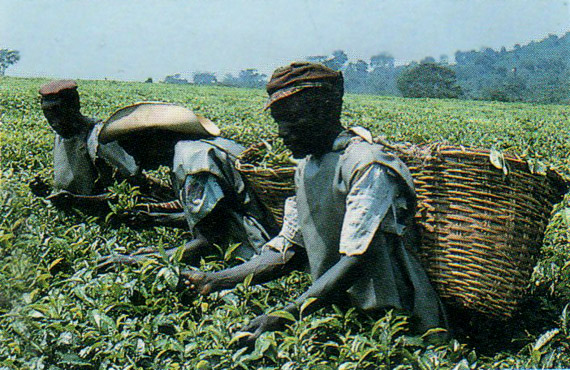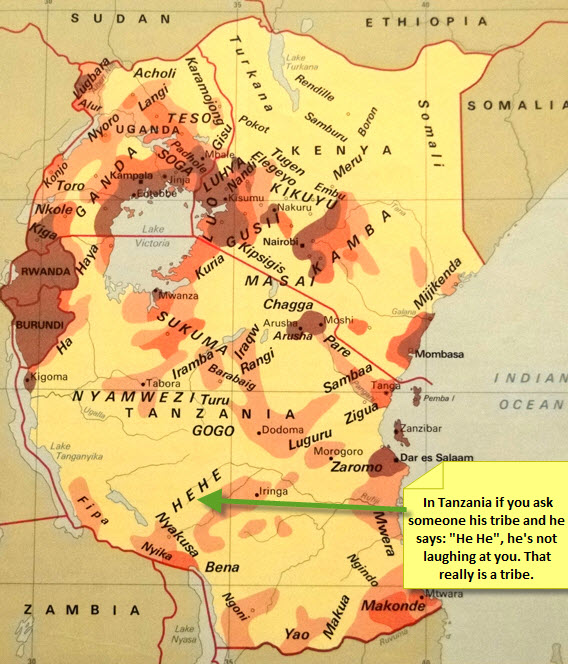
[HOME ] [ABOUT] [PHOTOS] [VIDEO] [BLOG] [HOUSTON] [TEXAS] [U.S. NEWS] [WORLD NEWS] [SPORTS] [POP CULTURE] [CONTACT]
Part IV: African reality--Did the colonialists leave a little too soon?

Before the emergence of police states during post-colonialism, African farmers pooled together their own resources and formed cooperatives. These helped farmers gain financial independence, and at the time, most African countries did not depend on foreign aid. These cooperatives have since been destroyed by the ruling class that has created a poverty stricken class of peasants they can easily control. Donor money hardly goes to those it is intended for, because the fat cats keep getting fatter due to lack of checks and balances and accountability in these police states.
by Joseph Earnest May 12, 2014
Newscast Media HOUSTON, Texas—The argument can be raised as to whether after Africa was colonized, the colonialists left too soon without addressing or providing solutions to the problems that plagued the new nations that were formed.
Africa was mainly made up of kingdoms, princedoms, sultanates and chiefdoms before the colonialists arrived. In East Africa, for example, there were hundreds of tribes that spoke different languages and observed various customs. Below is a map of East Africa to acquaint the reader with the ethnicities of the Great Lakes region:

At the time, Tanzania was controlled by the Germans but had not been declared their territory. What we know as Kenya and Uganda had not been fully explored with the latter being dominated by four kingdoms while the former was made up of chiefdoms. It was a German soldier by the name of Dr. Carl Peters who started his journey at Bagomoyo on the coast (above Dar-es Salaam) and traveled inland through the Kenyan Highlands and wilderness, conquering virtually every tribe he came across. As he conquered these tribes, he made them sign treaties pledging their allegiance to Germany, and the German Emperor Wilhelm II, King of Prussia, thereafter the German flag was raised as he continued inland toward Kisumu around Lake Victoria.
The toughest battle he faced was with the Masai warriors right before he reached Kisumu. In the end he won the battle because of the sophisticated firearms he used, compared to the spears used by the Masai. In return for signing treaties, Germany offered its protection to the chiefdoms and sultanates against their enemies. You may read or download some of the treaties here. (pop-up)
At this point, Carl Peters was at the doorstep of what is currently referred to as the Buganda kingdom within Uganda. At the time, Buganda ruled Africa, and virtually all the great kings from Rumanika of Karagwe, to Sultan Sayyid Barghash of Zanzibar and even Khedieve Ismail of Egypt, paid tribute to Baganda kings and the kingdom. The region Carl Peters was about to enter is called Usoga (Busoga), which was a domain of the Buganda kingdom. Buganda produced the mightiest warriors on the Continent that even the legendary Masai, did not dare attack the Basoga knowing full well that the Baganda would punish them for invading their cousins, the Basoga.
It was for this reason that Carl Peters had to pause and inquire about the Basoga (Wasoga) and the Baganda (Waganda). Peters was advised to seek permission from the then King Mwanga of Buganda to enter Busoga, because intelligence had already reached him that the Badutchi (Germans) were approaching.
The story of Mwanga is one of redemption. A story of King who had persecuted Christians for abandoning the religion of their fathers, then a few years later, he himself became a born again Christian and was protecting Christians from persecution by the Arab faction in the region.
Carl Peters records in his diary an interview he conducted with the natives who advised him to contact Mwanga before setting foot in Busoga, since the Baganda were bad news and would defeat any invading army entering from the East. Read or download the two-page interview. (pop-up)
As fortune would have it, Carl Peters was given permission to enter the Kingdom of Buganda. At the time, the Arabs had armed the Muslim faction of the kingdom and forced the Christians out. Mwanga retreated on the island of Bulingugwe, on Lake Victoria, then relaunched his military campaign, and stomped out the rebellion, obliterating the Arabs who fled to Ujiji on Lake Tanganyika, then later to Tabora and finally back to Zanzibar.
As Carl Peters was making his way through Busoga, King Mwanga was back on the throne awaiting him at Mengo. After several days, Carl Peters arrived and met the king. Both discussed the safety of the Catholic missionaries in the kingdom, and Carl Peters told the king that because his father King Mutesa I had invited missionaries, and since Mwanga himself had been baptized and was now a Christian king, for the sake of protecting the foreign missionaries together with new converts, it would be best for Mwanga to make a pact with Germany, on a voluntary basis, that way once Buganda was a protectorate of Germany, the Catholic missionaries would feel safe and secure, and also be able to acquire weapons from the Germans stationed in Tanganyika, if they needed protection from invading enemies.
It was this very discussion that Carl Peters had with Mwanga, in the presence of Father Lourdel, a French missionary, that Buganda voluntarily agreed to become a German protectorate. This happened long before the British tricked a young infant king to sign the infamous 1900 Buganda agreement a decade later.
Many don't realize that Germany had all of East Africa under its protection by 1890, before the British started making trouble by encouraging raids on neighboring chiefdoms. The British essentially were Johnny-come-latelies. The Buganda-German Agreement of February 27, 1890, executed in Luganda, French, Swahili and translated in English, that made Buganda a German Protectorate can be read or downloaded here. (pop-up)
With this treaty, Carl Peters had accomplished what Bismarck had done in Europe in creating a German empire (Prussia). This empire now encompassed almost the entire East African region--that's until the British heard about this new development. The early British explorers Speke, Henry Morton Stanley (who was actually Welsh) and Mr. Jackson, had left too soon without getting anything on paper.
The British envied the relationship the Germans had forged with the coveted Buganda Kingdom, so they decided to send their big guns to ruin the party a few years later. Most of the problems being faced in this region can be traced back to the British interference into the internal affairs of the local tribes, in an effort to grab land from the natives and award it to themselves, including the Anglo-German Heligoland Treaty that is causing tensions between Malawi and Tanzania over colonial boundaries.
The British successfully grabbed land in South Africa, Rhodesia (current Zimbabwe) and would flood Kenya with settlers on the best pieces of real estate. Lastly, they would attempt to unite several chiefdoms, kingdoms and princedoms in the Central region and sandwich them together into the country currently referred to as Uganda. Find out in Part V how the British unknowingly would give rise to a police state under a unitary system.>>
Related stories:
Part I: African reality is a product of pseudo democracy
Part II: African reality is a product of pseudo democracy
Part III: African reality is a product of pseudo democracy
Part IV: African reality is a product of pseudo democracy
Part V: African reality is a product of pseudo democracy
|
|
Join the Newscast Media social networks
for current events and multimedia content.
Copyright© Newscast Media. All Rights Reserved. Terms and Privacy Policy
